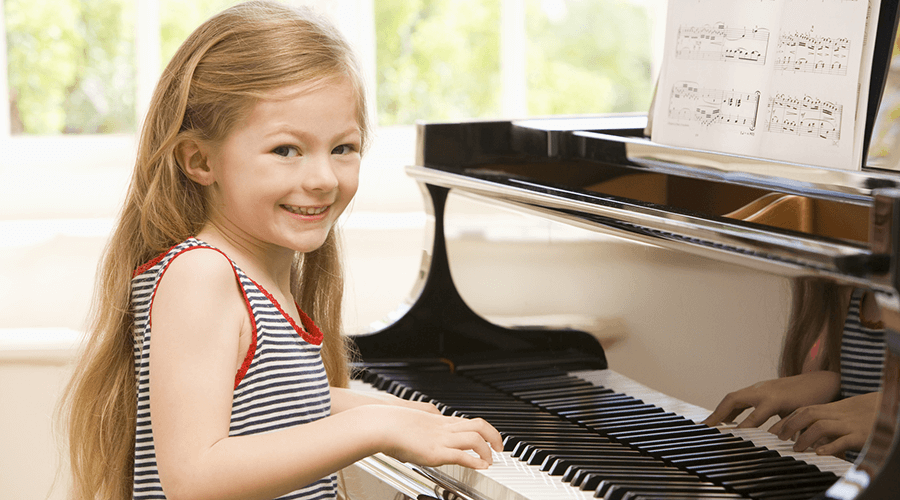Pianos are popular instruments learned even by young children. They’re delightful to play, entertaining and educational, and have beautiful tones worthy of listening and appreciation.
Most acclaim the piano as the instrument best to learn first compared to others. After all, the learning curve is considered gentle, and musically, almost every tune is possible to play on the piano.
Learning the piano is also often associated with improved reading, comprehension, and mathematics skills. It can also lead to enhanced memory and better creative and social skills.
Parents must be wondering which piano type is best for their children, especially those only beginning to play. This article provides a guide but for starters, check out these finds written by Robert Emery.
Table of Contents
Are There Benefits of Learning Piano Early?
Parents interested in having their children learn any instrument, including the piano, often ask, “What is the best age for my child to learn how to play?”
The answer is that there is no right age, though some experts recommend somewhere between six to eight years of age.
What is important is that your child shows a strong interest and desire for the instrument – having had familiarity with the piano for a few years – and can concentrate for at least 15 minutes while learning.
Reading is an advantage, too, and having solid hands but not yet too small ones.
With those in mind, the crucial beginning stages follow: Learning the notes, having finger exercises, strengthening the fingers, and similar activities.
Regardless of your child’s age, it is satisfactory to see your child play an instrument well.
Add the contribution of learning a musical instrument that accelerates a child’s cognitive development to the list of benefits.
What Piano Should My Beginner Child Use?
Many questions arise regarding the piano for beginners. While there is no specific brand to consider, we listed some considerations for your purchase below, mostly culled from suggestions of seasoned music teachers.
1. Pick a full-size piano with 88 notes.
It is better to buy a full-size piano with 88 notes for your child. Even though there are keyboards with only 61 or 76 notes, they do not usually come with weighted keys.
Time will also come when, as the duration of your child’s learning extends, using the other keys is inevitable because of the broader range of notes to play (including top-end and low-end notes).
That puts the keyboards with only fewer keys at a disadvantage.
Moreover, if and when your child decides to take music professionally someday, examination boards require a full-size piano.
2. Get a piano with weighted keys.
It is better to get your child a piano with weighted keys. It helps them, first and foremost, to build finger strength.
Children who also first learn through a digital piano can better transition to an acoustic piano when the time comes.
The child might struggle if they get used to non-weighted keys right from the start.
3. Your choice of an acoustic or digital piano depends on your personal preference.
Years ago, playing and learning on acoustic pianos was the top choice, especially when digital technology for musical instruments was not yet as advanced as today.
However, nowadays, the difference between the sound of an acoustic piano and a digital one is no longer evident.
Tha is why the choice of piano type depends on your personal preference. Get an acoustic piano if you can shoulder the occasional maintenance costs.
If there must be a deciding factor, it’s the sound. It does not always follow that the acoustic piano sounds better; it is better to play on a digital piano than an acoustic piano that’s not tuned correctly.
Note that the digital piano takes up less space, so if you don’t have a large area at home, it might be good to get the digital one first.
If you have some space and would like a great decor piece, then an acoustic piano is the right fit for you and your child.
Lastly, it is essential to think of the investment you’re willing to make for the piano. What’s important is that your child will learn and play more.
The Bottom Line
Your child can learn to play the piano regardless of the cost and material used for the piano. Even if we recommend the full-size piano, should your budget only allow a 61-key at the start, then go with that – what’s best is that your child can already start learning.
Some parents might also be anxious to invest a significant amount for a piano, especially those thinking that learning the piano might just be a phase.
Still, the skills and time that your child will have gained – whether for a year or ten years playing the piano – are worth the investment, especially for their brain development.
Good luck, and we wish you the best in your child’s learning journey!

